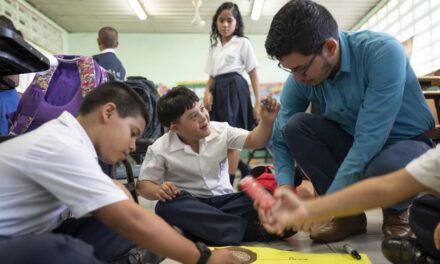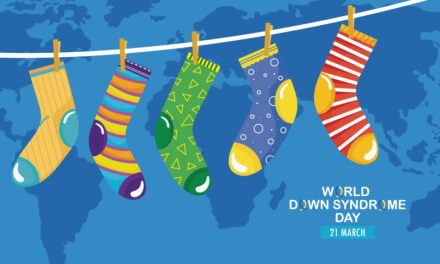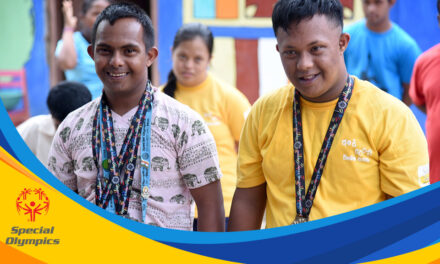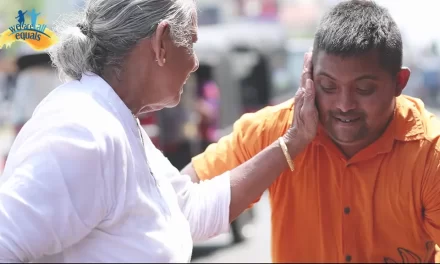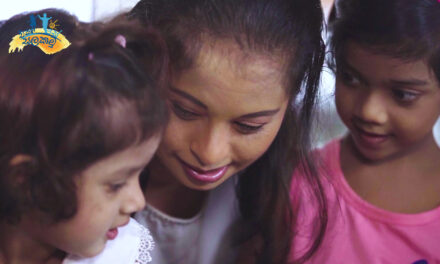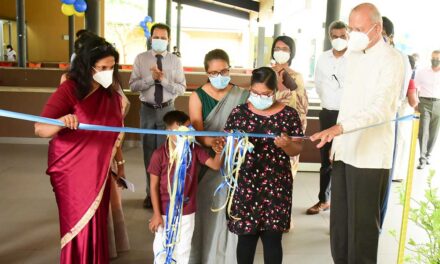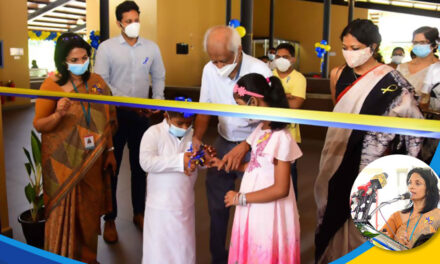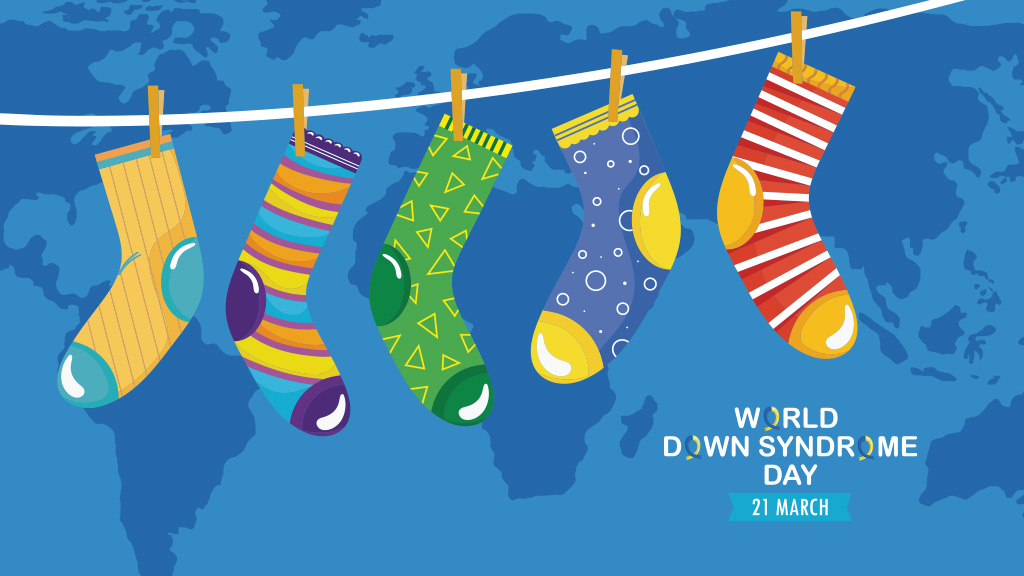Down syndrome occurs when an individual has an extra partial (or whole) copy of chromosome 21. It is not yet know why this syndrome occurs, but Down syndrome has always been a part of the human condition. It exists in all regions across the globe and commonly results in variable effects on learning styles, physical characteristics and health.
Adequate access to health care, to early intervention programmes, and to inclusive education, as well as appropriate research, are vital to the growth and development of the individual.
In December 2011, the General Assembly declared 21 March as World Down Syndrome Day (A/RES/66/149). The General Assembly decided, with effect from 2012, to observe World Down Syndrome Day on 21 March each year. In order to raise public awareness of Down syndrome, the General Assembly invites all Member States, relevant organizations of the United Nations system and other international organizations, as well as civil society, including non-governmental organizations and the private sector, to observe World Down Syndrome Day in an appropriate manner.
Background
The estimated incidence of Down syndrome is between 1 in 1,000 to 1 in 1,100 live births worldwide. Each year, approximately 3,000 to 5,000 children are born with this chromosome disorder.
The quality of life of people with Down syndrome can be improved by meeting their health care needs, including regular check-ups with health professionals to monitor mental and physical condition and to provide timely intervention be it physiotherapy, occupational therapy, speech therapy, counselling or special education. Individuals with Down syndrome can achieve optimal quality of life through parental care and support, medical guidance, and community based support systems such as inclusive education at all levels. This facilitates their participation in mainstream society and the fulfilment of their personal potential.
ලෝක ඩවුන් සින්ඩ්රෝම් දිනය
ඩවුන් සින්ඩ්රෝමය ඇති වන්නේ පුද්ගලයෙකුට වර්ණදේහ 21 හි අමතර අර්ධ (හෝ සම්පූර්ණ) පිටපතක් ඇති විටය. මෙම සින්ඩ්රෝමය ඇතිවන්නේ මන්දැයි තවමත් නොදනී, නමුත් ඩවුන් සින්ඩ්රෝමය සැමවිටම මිනිස් තත්වයේ කොටසක් වී ඇත. එය ලොව පුරා සෑම ප්රදේශයකම පවතින අතර සාමාන්යයෙන් ඉගෙනීමේ ශෛලීන්, භෞතික ලක්ෂණ සහ සෞඛ්යය කෙරෙහි විචල්ය බලපෑම් ඇති කරයි.
සෞඛ්ය සේවා සඳහා ප්රමාණවත් ප්රවේශයක්, පූර්ව මැදිහත්වීම් වැඩසටහන් සහ ඇතුළත් අධ්යාපනය මෙන්ම සුදුසු පර්යේෂණ, පුද්ගලයාගේ වර්ධනයට සහ සංවර්ධනයට අත්යවශ්ය වේ.
2011 දෙසැම්බර් මාසයේදී එක්සත් ජාතීන්ගේ මහා මණ්ඩලය විසින් මාර්තු 21 ලෝක ඩවුන් සින්ඩ්රෝම් දිනය ලෙස ප්රකාශයට පත් කරන ලදී (A/RES/66/149). එක්සත් ජාතීන්ගේ මහා මණ්ඩලය 2012 සිට ක්රියාත්මක වන පරිදි සෑම වසරකම මාර්තු 21 වන දින ලෝක ඩවුන් සින්ඩ්රෝම් දිනය සැමරීමට තීරණය කළේය. ඩවුන් සින්ඩ්රෝමය පිළිබඳ මහජනතාව දැනුවත් කිරීම සඳහා, මහා සභාව සියලුම සාමාජික රටවලට, එක්සත් ජාතීන්ගේ පද්ධතියේ අදාළ සංවිධානවලට සහ අනෙකුත් ජාත්යන්තර සංවිධානවලට මෙන්ම රාජ්ය නොවන සංවිධාන සහ පෞද්ගලික අංශය ඇතුළු සිවිල් සමාජයට ලෝක ඩවුන් සින්ඩ්රෝම් දිනය සුදුසු ආකාරයකින් නිරීක්ෂණය කිරීමට ආරාධනා කරයි.
පසුබිම
ඩවුන් සින්ඩ්රෝමයේ ඇස්තමේන්තුගත සිදුවීම ලොව පුරා සජීවී උපත් 1,100 න් 1,000 න් 1 ත් 1 ත් අතර වේ. සෑම වසරකම, මෙම වර්ණදේහ ආබාධ සහිත දරුවන් 3,000 සිට 5,000 දක්වා උපත ලබයි.
ඩවුන් සින්ඩ්රෝමය ඇති පුද්ගලයින්ගේ සෞඛ්ය සේවා අවශ්යතා සපුරාලීමෙන්, මානසික හා ශාරීරික තත්ත්වය නිරීක්ෂණය කිරීම සඳහා සෞඛ්ය වෘත්තිකයන් සමඟ නිරන්තර පරීක්ෂාවන් ඇතුළුව, භෞතචිකිත්සාව, වෘත්තීය ප්රතිකාර, කථන චිකිත්සාව, උපදේශනය හෝ කාලෝචිත මැදිහත්වීමක් ලබා දීමෙන් ඔවුන්ගේ ජීවන තත්ත්වය වැඩිදියුණු කළ හැකිය. විශේෂ අධ්යාපනය. ඩවුන් සින්ඩ්රෝමය ඇති පුද්ගලයන්ට මාපිය රැකවරණය සහ සහාය, වෛද්ය මඟපෙන්වීම, සහ සියලු මට්ටම්වල ඇතුළත් අධ්යාපනය වැනි ප්රජා පාදක ආධාරක පද්ධති හරහා ප්රශස්ත ජීවන තත්ත්වය අත්කර ගත හැකිය. මෙය ප්රධාන ධාරාවේ සමාජයට ඔවුන්ගේ සහභාගීත්වය සහ ඔවුන්ගේ පුද්ගලික හැකියාවන් සපුරාලීමට පහසුකම් සපයයි.

